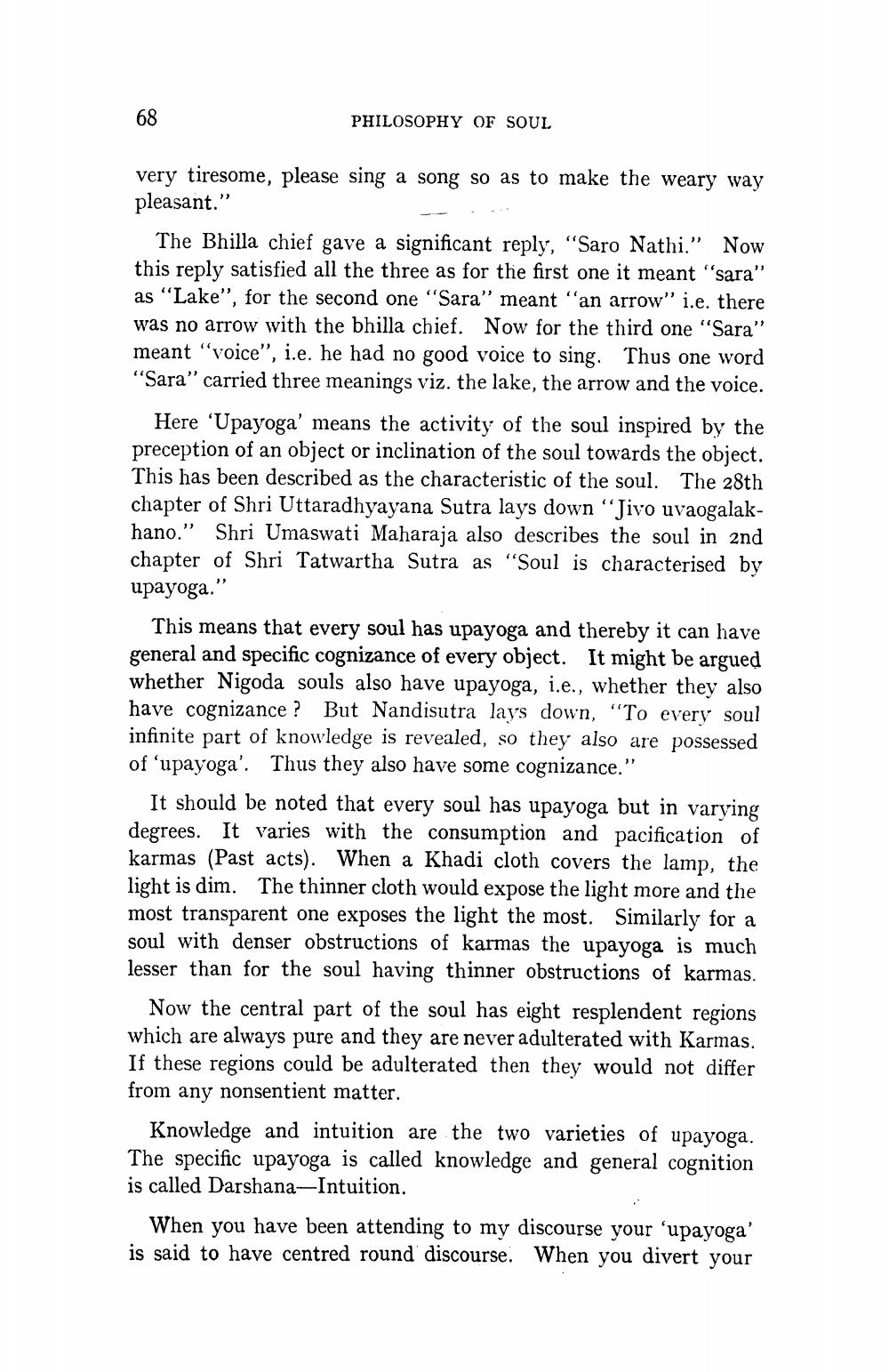________________
PHILOSOPHY OF SOUL
very tiresome, please sing a song so as to make the weary way pleasant."
The Bhilla chief gave a significant reply, “Saro Nathi.” Now this reply satisfied all the three as for the first one it meant "sara" as “Lake”, for the second one "Sara" meant "an arrow" i.e. there was no arrow with the bhilla chief. Now for the third one "Sara" meant "voice”, i.e. he had no good voice to sing. Thus one word "Sara" carried three meanings viz. the lake, the arrow and the voice.
Here 'Upayoga' means the activity of the soul inspired by the preception of an object or inclination of the soul towards the object. This has been described as the characteristic of the soul. The 28th chapter of Shri Uttaradhyayana Sutra lays down 'Jivo uvaogalakhano." Shri Umaswati Maharaja also describes the soul in and chapter of Shri Tatwartha Sutra as "Soul is characterised by upayoga.'
This means that every soul has upayoga and thereby it can have general and specific cognizance of every object. It might be argued whether Nigoda souls also have upayoga, i.e., whether they also have cognizance ? But Nandisutra lays down, "To every soul infinite part of knowledge is revealed, so they also are possessed of ‘upayoga'. Thus they also have some cognizance."
It should be noted that every soul has upayoga but in varying degrees. It varies with the consumption and pacification of karmas (Past acts). When a Khadi cloth covers the lamp, the light is dim. The thinner cloth would expose the light more and the most transparent one exposes the light the most. Similarly for a soul with denser obstructions of karmas the upayoga is much lesser than for the soul having thinner obstructions of karmas.
Now the central part of the soul has eight resplendent regions which are always pure and they are never adulterated with Karmas. If these regions could be adulterated then they would not differ from any nonsentient matter.
Knowledge and intuition are the two varieties of upayoga. The specific upayoga is called knowledge and general cognition is called Darshana-Intuition.
When you have been attending to my discourse your ‘upayoga' is said to have centred round discourse. When you divert your




